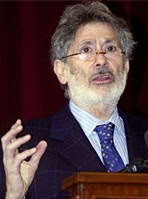
Mespotamian Seal
This is undoubtedly one of the earliest masterpieces of literature. The version we have is attributed to Sin-liqe-unninni, who lived in the 13th to the 11th century B.C.E., and whose name means "Oh Moon god, Accept my prayer!".2 Making it one of the oldest works that can be attributed to an author.
This is not the only version. There is a version called the old Babylonian version dated to c. 1800-1700 B.C.E., its seems to have been entirely superseded by the later version.3
The epic was based on stories written / composed in Sumerian during the third dynasty of Ur, during the reign of King Shulgi , c. 2100-2000 B.C.E.4
The stories that form the basis of the Epic of Gilgamesh, are:
- Bilgames and Huwawa;
- Bilgames and the Bull of Heaven;
- Bilgames and the Netherworld;
- The Death of Bilgames.5
Other sources of the Epic of Gilgamesh include the Mesopotamian flood myth.6
In the tale Gilgamesh is an arrogant, young King whose ruthlessness in exploiting his people to built great walls around Uruk, and his sexual exploitation of his people leads to the Gods creating Enkidu, a wild man of the forest, who is lured to Uruk to fight Gilgamesh after a great battle Gilgamesh and him become the best of friends, for it was foretold that Gilgamesh would find his soul mate.
Gilgamesh and Enkidu go the mountains of cedar where they defeat and kill the fire breathing monster Huwawa, for which they gain much renown. The Goddess Isthar then appears and asks Gilgamesh to marry her. He rejects the request with a flurry of insults. Ishtar in a rage sends the Bull of Heaven to ravage Uruk but after a great battle Enkidu and Gilgamesh slay the beast. Now truly enraged Ishtar sends a wasting disease to kill Enkidu. After a long illness Enkidu dies and Gilgamesh mourns him.
Gigamesh now brought face to face with the prospect of his own mortality goes in search of the only man and women who are immortal; Uta-napishti and his wife. After many adventures Gilgamesh finally reaches Uta-napishti's home. He asks Uta-napishti how he came to be immortal. Uta-napishti then recounts the story of the great flood that eradicated virtually all of mankind and how he survived. After the flood Uta-napishti sacrificed to the Gods and has a reward for his piety the gods gave him and his wife immortality. Thus only the Gods can give it and they wont do so again. Uta-napishti tells Gilgamesh to go home and enjoy life while he has it.
Seeing Gilgamesh's despair Uta-napishti advises Gilgamesh about a plant that if it will not give eternal life but will rejuvenate. Gilgamesh gets the plant but a snake steals it. Gilgamesh returns to Uruk and contemplating the walls realizes he will be remembered.
It is of interest that in the collection of tales known has the Arabian Nights, which has a story called The Tale of Buluqiya, which is similar to the Epic of Gilgamesh.7
For a version of the Epic of Gilgamesh on the web see: Here
For the Sumerian stories about Bilgames, (Gilgamesh), see: Here
For the Tale of Buluqiya, see: Here
1, Myths From Mespotamia, Stephanie Dalley, Oxford University Press, Oxford, 1989, p. 40.
3, The Epic of Gilgamesh, p, xxi.
4, The Epic of Gilgamesh, p. xvii.
5, The Epic of Gilgamesh, p. 149, 166, 175, 195, Bilgames is the Sumerian version of Gilgamesh.
6. The Epic of Gilgamesh, pp. 88-93. Myths from Mesopotamia, pp. 109-115, Atrahasis, pp. 9-35, (a version of the flood myth).
7, Myths From Mesopotamia, pp. 47-48.


